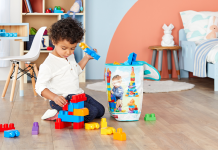- Spend quality time with your children
When you spend time with the kids let them have all your attention. Put away the X box and the Iphone distractions and allow the quality time you have with them forge bonds that will last forever. By communicating with them opening, listening carefully to everything they say and doing things together that they like to do, your child will not only love you more, but you will be teaching them to be considerate and caring and reinforcing positive memories of their childhood. So, ask them how their day was, listen carefully and discuss any problems they might be having. Learn from them how to play games they like or read a book together before bedtime.
2. Be their moral rolemodel and mentor
Children learn from their environment. What you do is what they eventually become. This is why you should always pay attention to your manners and actions and be ready to admit your own faults and mistakes. Show them that you care and are ready to accept your faults. Practise honesty, good manners and humility. Your child will only look up to you if you earn their trust and respect.
Be ready to admit your mistakes, apologies and show them that you wish to make up for them and how you plant to avoid the same mistake again. Explain to your child what you learnt from your mistakes.
3. Teach your child to be caring and set high ethical expectations
Kid need to learn to socialise with others in the right way. Hold your kids to high ethical expectations. Honour their commitments. Teach them to do the right thing and to care about others around them. Responsibilities and obligations are things you need to remind your kids of. Chores, school responsibilities, manners, friends and promises are all things that they will have to deal with from an early age.
- Encourage them to practice appreciation and gratitude.
A child that is not spoilt will acknowledge the role other people play in their life in a healthy way. This comes with appreciating people who contribute to their life. People who practise gratitude are more likely to be helpful, generous, compassionate and forgiving. Let your children learn from your actions. Encourage them to express appreciation to family members, teacher and others who play a significant role in their lives.
5. Teach them to see the big picture
Teach children to think and care about people outside their small circle of family and friends. Encourage them to consider the perspectives and feelings of others, especially those who are more vulnerable. Give them ideas for taking action, like comforting the classmate who was teased, or reaching out to a new child in class.
Discuss other people’s hardships and different experiences of kids in other countries and communities with them.






